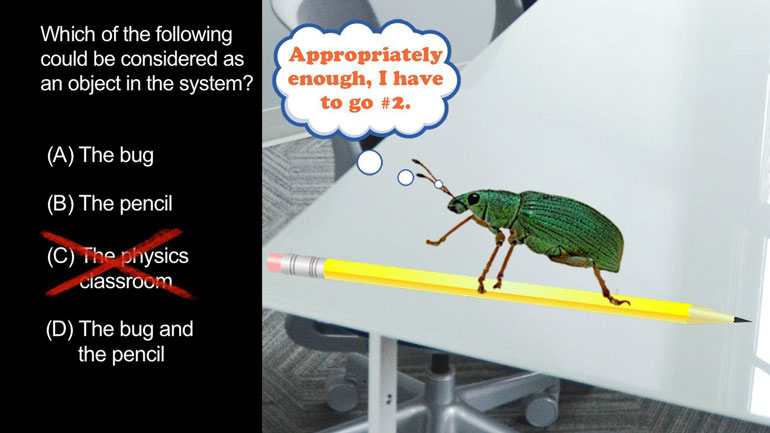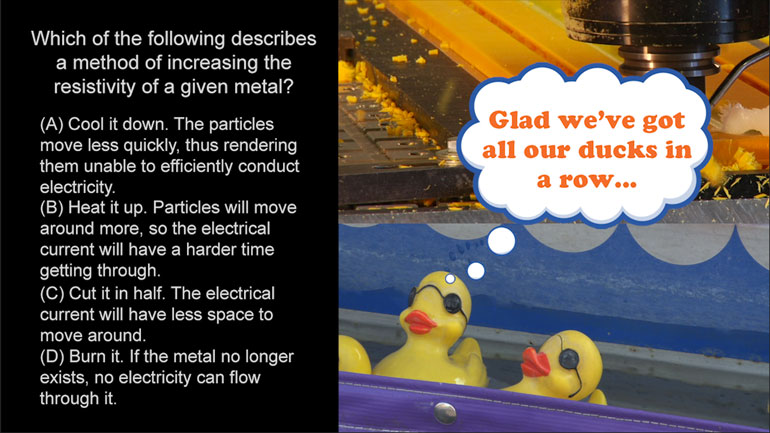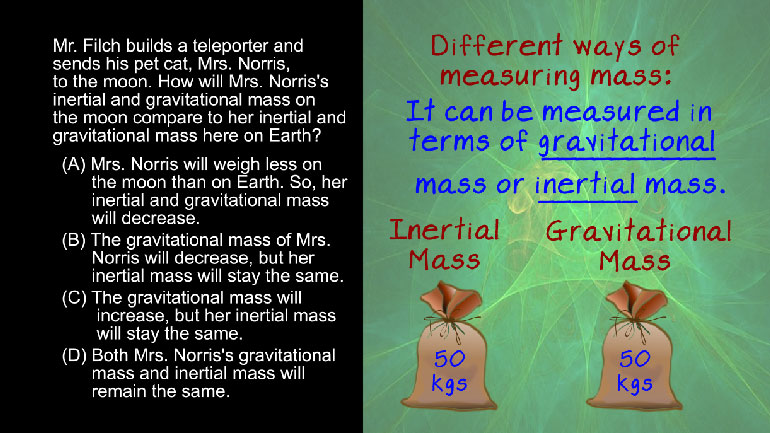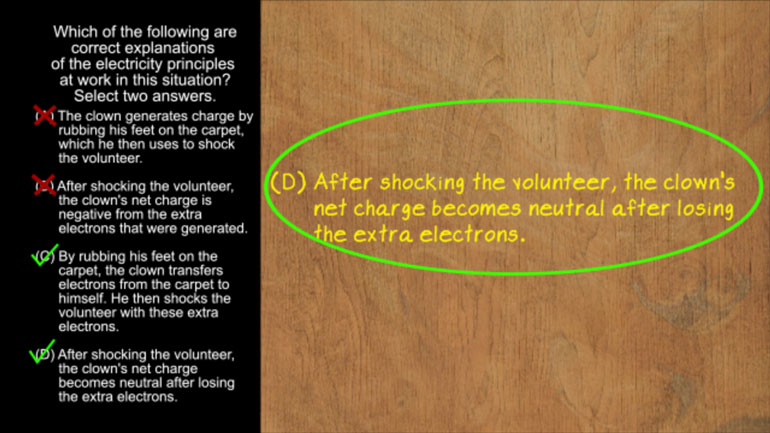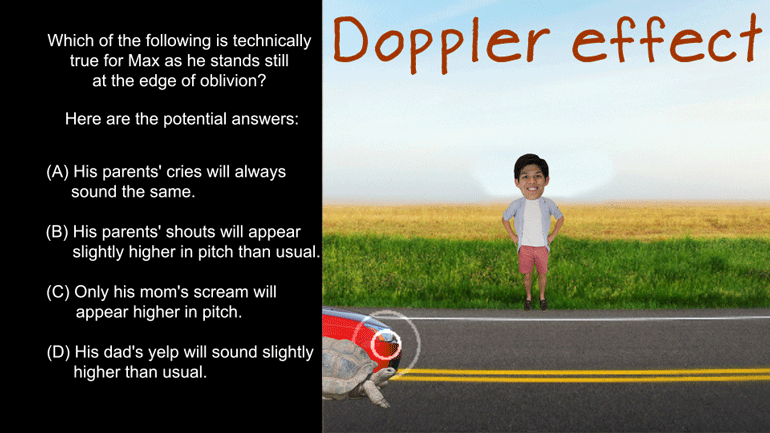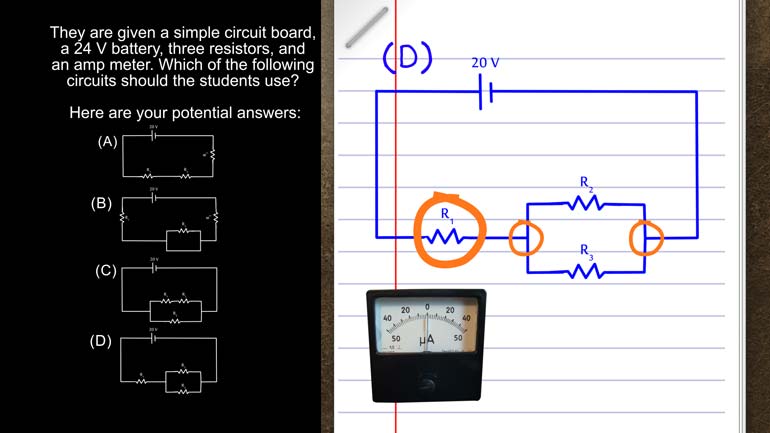ShmoopTube
Where Monty Python meets your 10th grade teacher.
Search Thousands of Shmoop Videos
Playlist AP® Physics 1: Properties of Objects and Systems 13 videos
AP Physics 1: Properties of Objects and Systems Drill 1, Problem 1. Which of the following could be considered as an object in the system?
AP Physics 1: 1.4 Properties of Objects and Systems. What is the difference between inertial and gravitational mass?
AP Physics 1: 1.5 Properties of Objects and Systems. Which of the following can be classified as a system?
AP Physics 1: 3.3 Properties of Objects and Systems 215 Views
Share It!
Description:
We can't resist a good question about resistivity. Can you?
Transcript
- 00:03
Here's your Shmoop du jour your brought to you by resistivity.
- 00:07
Resistivity is a measure of... resistance a student is comparing the resistivity of [Alarm clock electrocutes young boy]
- 00:13
two different metallic bars that have an equal shape and size. What would be the
- 00:18
best way to do so? And here's the potential answers.
- 00:22
(Mumbles)
Full Transcript
- 00:26
All right, well if we're gonna be measuring
- 00:28
something it's important to use the right tool for the job, for example we
- 00:32
can't take someone's temperature using a bathroom scale. Uh, we tried that on our [Sick looking man goes to stand on a scale]
- 00:37
selves once and all we learned was that our fever was making us a little
- 00:41
delirious... So to compare the resistivity of two different metals we need to use
- 00:46
the right method and the right tool since resistivity is a measure of how
- 00:49
easily electric current flows through a material the only way to measure it is
- 00:53
by using electricity, and the best way to measure that difference in resistance
- 00:57
also known as the voltage drop is with a voltmeter. If you do it again it's a
- 01:03
revolting sorry nevermind... Alright so by a little process of elimination the
- 01:07
correct answer here is D, if we were trying to measure how the different
- 01:10
metals conduct heat then A would be the right answer and if we were trying to [Metal objects are thrown onto a fire]
- 01:13
see how heavy each metal is well then it'd be C and if we'd had a long day and wanted
- 01:18
to rage out on something well then option B would be right. Oh and you could
- 01:22
also determine which metal is more brittle that way too yep the right tool for the
- 01:26
job it's important in plumbing, car repair and physics and now we're feeling [Luigi, car mechanic and scientist appear in a toolbox]
- 01:30
increased resistivity to being awake so well you know, nap time... [Alarm clock jumping on young boys head]
Related Videos
AP Physics 1: 2.5 Changes and Conservation Law. At what point(s) in this situation is energy lost in any form?
AP Physics 1: 1.4 Waves. Which of the following is technically true for Max as he stands at the edge of oblivion?
AP Physics 1: 1.4 Changes and Conservation Laws. Find the current across R2.
AP Physics 1: 2.4 Changes and Conservation Laws. Which of the following circuits should the students use?
AP Physics 1: 1.5 Waves. What can possibly occur when the two waves reach each other?
